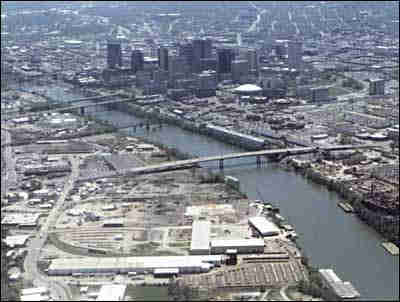
The first settlers in what is now known as Nashville were Indians of the Mississippian culture. They lived in the area from about 1000 A.D. to 1400 A.D. Here they raised corn, created earthen mounds, painted beautiful pottery and then mysteriously disappeared. The Cherokee, Chicksaw and Shawnee followed and used the area as a hunting and fishing ground.The first Europeans to come to the area were French fur traders who established a trading post in 1717. The first permanent settlement was established in 1779. It was on the banks of the Cumberland River near the center of downtown Nashville that a band of pioneers led by James Robertson cleared the land and built a log stockade. It was named Fort Nashborough in honor of the Revolutionary War hero General Francis Nash. In April of 1780, John Donelson and 60 families came to settle the new community that was then a part of North Carolina. In 1784 the community's name was changed from Nashborough to Nashville.
Tennessee became the sixteenth state in 1796 and Nashville was made its permanent capital in 1843.
By 1860 Nashville was a prosperous city but was soon devastated by the Civil War. Because of Nashville`s strategic location on the river and the railroad line, the city was occupied by yankee troops for three years. The Battle of Nashville fought in 1864 was the last aggressive action of the Confederate Army.
In the decades following the war, Nashville once again experienced a growth in population, business, banking, industry and education. A major area of growth was in music industry. Today Nashville is also known as "Music City".
Under its present Metropolitan Charter, Nashville and Davidson County have a single government. The populalation of Nashville is over 500,000 with a metropolitan population of well over one million. Nashville encompasses a land mass of over 533 square miles. This widespread area is governed by a mayor, a vice-mayor and a legislative council of 40 members.
